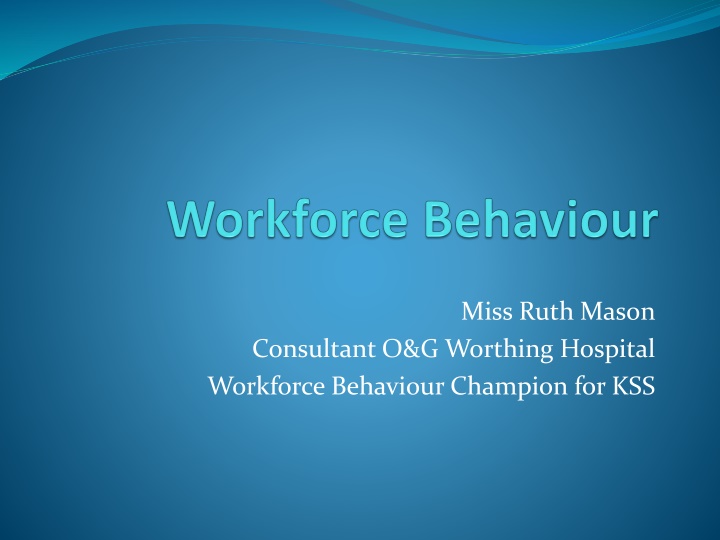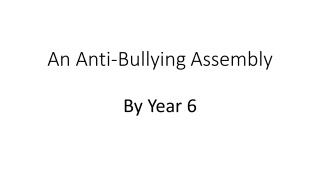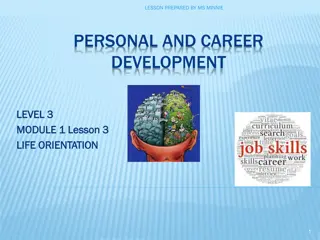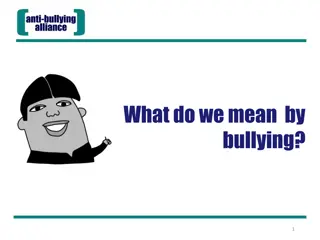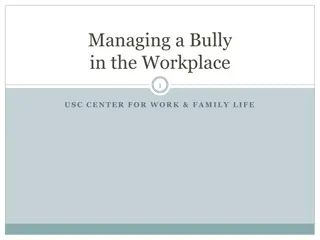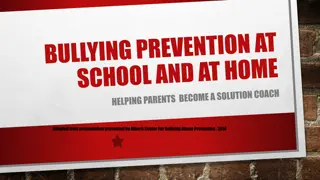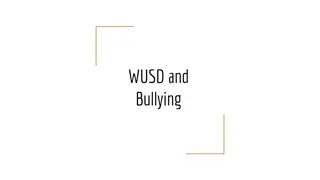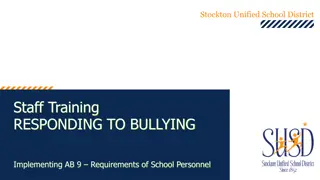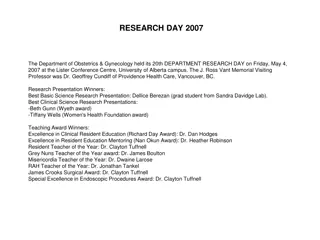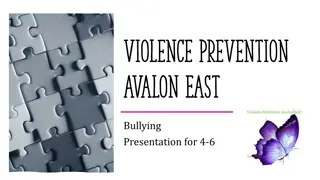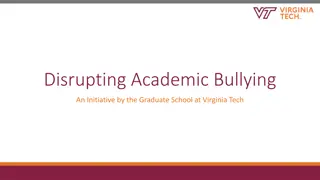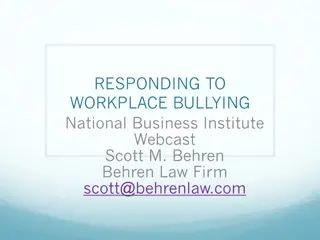Addressing Workplace Bullying in Obstetrics and Gynecology: Strategies and Impact
Workplace bullying in Obstetrics and Gynecology (O&G) is a prevalent issue with negative outcomes on staff well-being and patient care. Factors contributing to this problem include the nature of the specialty, high stress levels, and perfectionist characteristics. Bullying impacts training quality, team dynamics, individual effectiveness, patient safety, and costs due to absenteeism. RCOG/RCM initiatives and suggested actions like using modules, reporting incidents, and building resilience aim to combat this issue.
Download Presentation

Please find below an Image/Link to download the presentation.
The content on the website is provided AS IS for your information and personal use only. It may not be sold, licensed, or shared on other websites without obtaining consent from the author.If you encounter any issues during the download, it is possible that the publisher has removed the file from their server.
You are allowed to download the files provided on this website for personal or commercial use, subject to the condition that they are used lawfully. All files are the property of their respective owners.
The content on the website is provided AS IS for your information and personal use only. It may not be sold, licensed, or shared on other websites without obtaining consent from the author.
E N D
Presentation Transcript
Miss Ruth Mason Consultant O&G Worthing Hospital Workforce Behaviour Champion for KSS
Is it a problem in O&G? Prevalence of Bullying: 20% staff reported having been bullied in last 6 months Associated outcomes: with lower levels of psychological health, job satisfaction and higher levels of intention to leave work Barriers to reporting: perception that nothing would change, seniority of bully, not wanting to be seen as a trouble maker, uncertainty over policies/management New contract
Why is it a problem in O&G? Acute nature of specialty High empathy scores The significant on-call commitments High stress environment Changes in working hours and patterns The perfectionist characteristics exhibited by many consultants High work load The high risk of being involved in clinical incidents Blame culture
What is it? Bullying: is behaviour that hurts or frightens someone who is less powerful, often forcing them to do something they do not want to do. Undermining: behaviour that subverts, weakens or wears away confidence.
Who does it? doctors(40%) midwives (40%) nurses (18%) admin and other (2%)
Why does it matter? Reduced quality of training Impact on physical and mental health Poor team working Ineffective individuals Reduced patient safety Increased cost due to absenteeism
RCOG / RCM Joint taskforce (2013) Toolkit to provide advice (2014) Appointment of champions for each area https://www.rcog.org.uk/underminingtoolkit
What can you do? Use RCOG STRATOG modules Don t walk past Contact your Champion Develop resilience Don t do it yourselves
Resilience (noun) 1. the ability to become strong, healthy, or successful again after something bad happens. 2. the ability of something to return to its original shape after it has been pulled, stretched, pressed or bent.
Resilience https://www.youtube.com/watch?v=1FDyiUEn8Vw
What cant wait? Cardiac arrest Shoulder dystocia Prolonged bradycardia
How you develop your own resilience 1. 2. Take breaks Compartmentalise do what you need to do at the time (especially revision stick to the timetable, don t do emails, facebook etc) 3. Step back (ten seconds for the next ten minutes) 4. Be compassionate (to yourself, and others) 5. Mindfulness be in that moment not worrying about clinic the next day
Who can help? Colleagues Mentors Educational Supervisor College Tutor Workforce Behaviour Champion (me) TPD HoS RCOG GMC
Where to find help https://www.rcog.org.uk/en/careers- training/workplace-workforce-issues/improving- workplace-behaviours-dealing-with-undermining/ https://www.rcog.org.uk/en/careers- training/workplace-workforce-issues/support-for- doctors-in-difficulty/ http://www.gmc-uk.org/concerns/11551.asp
